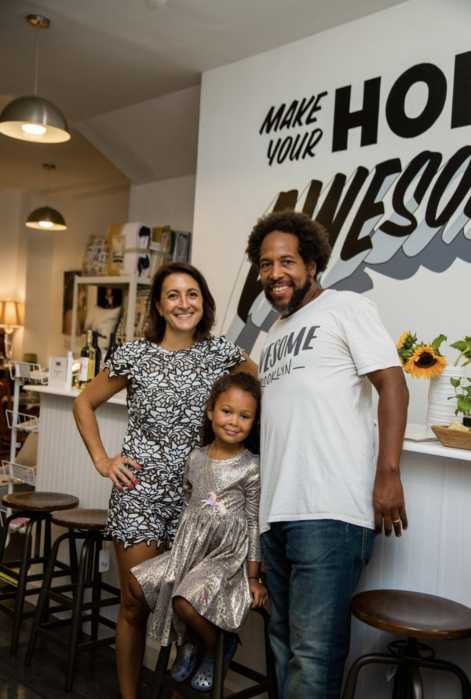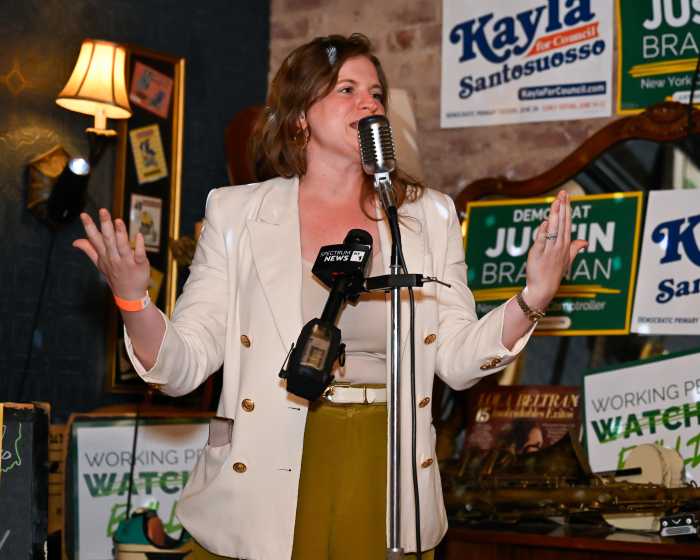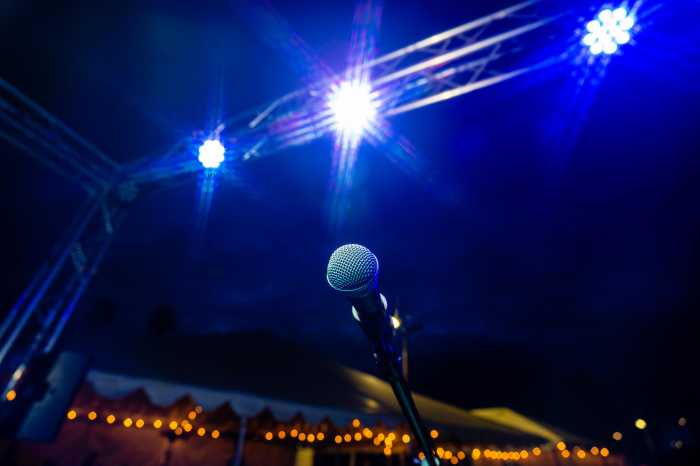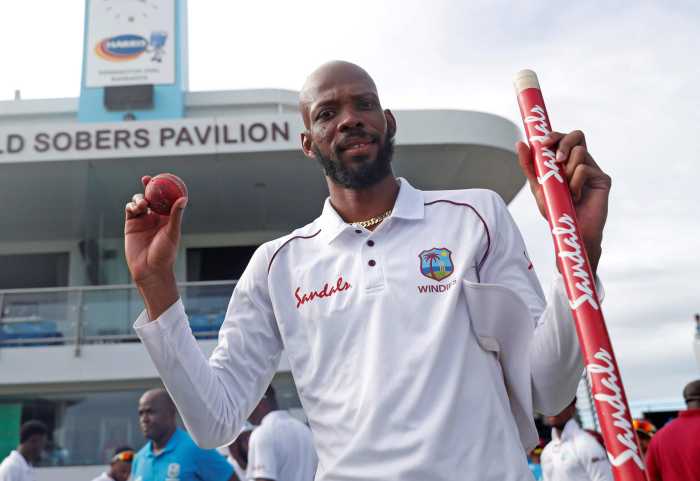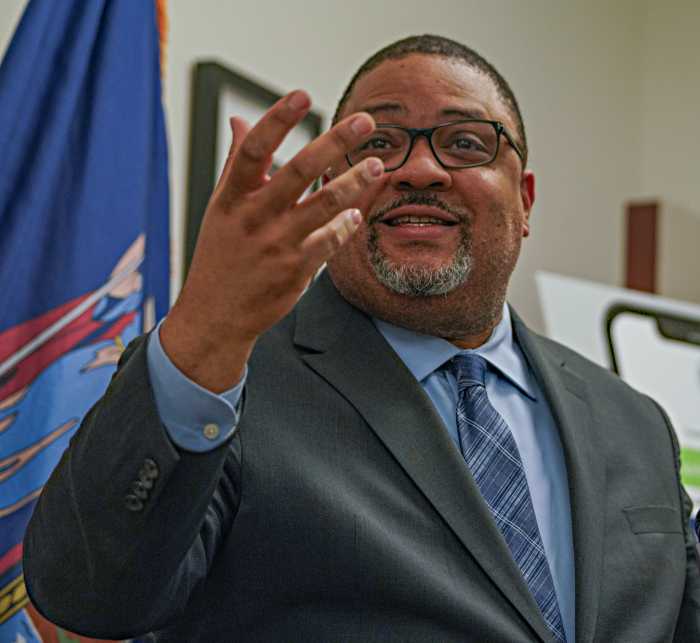Amanda Majeski, Peter Mattei, Ildar Abdrazakov, and Marlis Petersen in Richard Eyre's production of Mozart's “Le Nozze di Figaro.” | KEN HOWARD/ METROPOLITAN OPERA
September brought good news to New York’s opera world. The American Opera Projects premiered a fine new work of unusual interest to the LGBT community, Laura Kaminsky’s “As One.” And the Metropolitan, after bruising labor negotiations, opened on time, with an uneven new staging of Mozart’s “Marriage of Figaro” and a star quality revival of “Macbeth.”
“As One” had a brief run but will surely be back. The ongoing Met shows have upcoming HD showings this month — “Macbeth” on October 11 and “Figaro” on October 18.
The song cycle-like chamber opera “As One” (September 7) brought to BAM Fisher the story of a male-to-female transsexual, designated as “Hannah before” and “Hannah after” played by baritone and mezzo. Gay librettist Mark Campbell and trans filmmaker Kimberly Reed’s well-considered libretto yields an iconic, unexceptional but satisfyingly articulated journey to self-acceptance. Kaminsky’s scoring ranges widely and is apt and compelling throughout. Of how many new operas can that be said?
Laura Kaminsky’s inspiring new opera; Met season begins
Ken Cazan’s inventive direction profited by fine leads. Kelly Markgraf — unafraid to play fey — offered forthright lyricism and proved commendably responsive throughout. Wondrous Sasha Cooke, a real centering force as an actress, showed a mezzo full of nuanced colors and articulate verbal phrasing. Lucky San Franciscans will hear her as Berlioz’s Anna this June.
Under Steven Osgood’s fine direction, the Fry String Quartet played expertly and took active part in the staging. Reed’s ambitious video effects didn’t quite register but may play better if the show tours different venues, as it should. The message and the artistic content deserve wide exposure.
The Met’s “Figaro” will doubtless look and play better on HD. In-house on September 22, Richard Eyre’s direction was overbusy — staged overture, yawn; fussy crowd scenes with multiple extras confusingly dressed identically to Marlis Petersen’s winning Susanna; wedding photo, a trope to be banned immediately — shedding zero enlightenment on the drama. Precious little light, too, save for the Countess’ entrance (understandably tentative from 20-something debutante Amanda Majeski, a fine Mozart stylist with good line and appealing presence). Eyre’s team mired the stage in oppressive darkness, eliminating the needed sense of contrast between scenes and acts. A pre-World War II aesthetic prevailed, without adding much.
Peter Mattei’s Count ruled supreme: tall, sexy, adept at double-takes, dispensing phenomenal legato and seductive tone. Opposite him, Ildar Abdrazakov’s Figaro — while a quality bass and certainly handsome — emerged decent but unformed, not really projecting a fully rounded character.
Petersen made “Deh, vieni” the needed highlight despite undermining by Eyre, who placed her prematurely in the Countess’ costume, as if he hadn’t grasped the plot’s mechanics — what if Figaro sees her? — and surrounded her with witnesses.
Isabel Leonard looked and acted Cherubino splendidly. After an act her voice lost its intrusive vibrato on top and she sang well, but evidenced no memorable personal timbre. The comprimarios were disappointingly routine — in the case of Greg Fedderly’s camped Basilio, a nasty bit of minstrelsy that vocally evokes a provincial Dr. Blind, downright grating. Ying Fang’s lovely, promising Barbarina was the exception.
James Levine attained his wonted shaping control only fitfully, the brilliant second act finale passed for little. Smooth orchestral playing was assured, but Levine’s retrograde taste in Mozart — no cadenzas, almost no decoration — sounds ever more limiting. But a merely quite good “Figaro” is its own musical reward. Mattei and Petersen’s performances alone merit the admission, and surely the whole show (this cast plays through October 25) will improve with repetition.
Two nights later, Adrian Noble’s 2007 “Macbeth” returned: a mixed bag, but as often happens with revivals, some silly stuff — though not the protagonists’ floor-rolling — has been shelved and scene changes proved mercifully shorter. With four genuine star singers, the result felt like more a world-class premiere than had “Figaro.” Rather than pumping adrenaline, Zeljko Lucic’s Macbeth starts so unheroic and recessive that his character has no downward arc to trace. Still, despite persistent flatness in the upper middle, he voiced much of Macbeth’s music compellingly.
Despite occasional tonal overdrive, Anna Netrebko’s much-awaited first local Lady Macbeth was pretty damned impressive, with agility and power nicely balanced. Her Italian pronunciation is much improved, but she’s still rather outside the words. This plus Noble’s beyond-awkward blocking made for a vocally gorgeous but unmoving Sleepwalking Scene — no terror, no remorse. But the portrayal’s overall daring and accomplishment deserved warm applause.
Luxury casting supplied Rene Pape (Banquo) and Joseph Calleja (Macduff): these one-aria roles need star vocalism and rarely get it. Pape typically began as if comatose, but sang extremely well. Calleja’s bright singing honored the memory of the late Carlo Bergonzi, the Met’s first Macduff in 1959: one could hear Calleja at every point. Would he could put more emotional investment in Macduff’s great aria, aced purely in vocal terms.
Noah Baetge’s trenchant Malcolm and Claudia Waite’s stentorian ensemble high notes as the Lady-in-Waiting earned gratitude. The chorus sounded very strong, especially in Verdi’s searing — and unfortunately never out-of-date — refugees’ chorus. Fabio Luisi took a swift, Donizettian view of the score and did handsomely by it. This worthwhile show plays through October 18.
David Shengold (shengold@yahoo.com) writes about opera for many venues.













